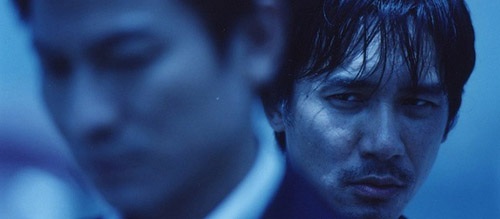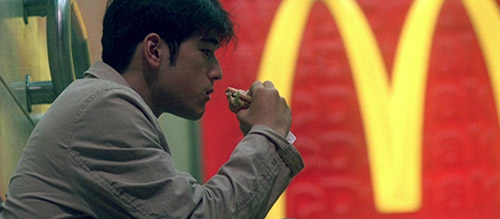The Identity Crisis of Hong Kong Cinema
This article was written exclusively for The Film Magazine by James Southcott.
Situated at the foot of China, the tiny state of Hong Kong houses some of the most creative and influential cinema the world has ever seen.
Hong Kong has proven itself as one of the finest auteurs of cinema in the past 50 years. From Bruce Lee to Ann Hui, stories and talent are abundantly emanating from the city. Hong Kong isn’t just a glorified film set as Hollywood would like you to believe, it’s a unique place filled with hardworking people; a bustling city in which every alleyway screams culture and every citizen has a story to tell.
Hong Kong is a place that almost feels like the Brandenburg Gate to the Far East; a gateway to a secretive communist empire and a global metropolis often depicted as the melting pot of both Eastern and Western cultures. The problematic colonial history of Hong Kong is astutely represented through film, leading to many internal and external conflicts over ideology and identity politics throughout the history of its cinema. Hong Kong’s perilous identity crisis has been thoroughly represented within its cinematic output of the past 40 years, whether this is through the action films of John Woo or the grounded romantic films of Wong Kar-Wai.
Hong Kong’s long colonial history began in 1841 when the British ‘acquired’ the small province from China after defeating them during one of the most ridiculous wars to have ever been fought – tea leaves and opium were the spoils. This led, after decades of British rule, to Hong Kong being returned to China on the 1st of July 1997 akin to an overdue Blockbuster rental. Britain returned its once cherished state back to China leaving the people of Hong Kong with an ongoing identity crisis they still battle with today.
Regarding Hong Kong’s controversial handover of sovereignty to China in 1997, Hong Kong’s filmmakers have effectively projected the fears, anxieties and identity crises of its citizens. Through utilising the city as a canvas for conveying the claustrophobic and dividing politics between the East and the West, Hong Kong’s creatives have beautifully represented the fiery colonial struggle on screen. Visionaries – to name a few: Wong Kar-wai, John Woo, Andrew Lau and Tsui Hark – have collectively produced vastly opulent and enriching films expertly encompassing the political climate of Hong Kong prior to, and post, the handover. The democracy, rich culture and immense prosperity of Hong Kong we see today may have never existed without the power and influence of its cinematic history.
For years, the Western media’s representation of Hong Kong has tended to focus on the more criminal aspects of the city. Stories of undercover police officers infiltrating Triad gangs are rife within the film industry. Hong Kong’s cinema is inundated with corrupt organisations and criminal moles arguably representing the Chinese government now in control. The medium of film provides an important outlet for the people of Hong Kong to express their anxieties of government spies.
One of the most popular films Hong Kong has ever produced is Andrew Lau’s and Alan Mak’s Infernal Affairs (2002), a film that only increased in popularity once it was remade for American audiences by Martin Scorsese in the form of The Departed. The Lau/Mak movie produces an abundance of binaries and allegories for Hong Kong’s dual heritage. The characters inhabit oppositional personas and represent opposing institutions, helping to personify the handover and dual nationality of its citizens through mimicking Britain’s and China’s omnipotent presences in Hong Kong. Throughout Infernal Affairs there are two contesting ideologies and syndicates batting for hegemonic and political power across the the city’s streets: the Triads and the Police. This is very akin to the power struggle between the ruling Chinese government and the fast dwindling British influence on the public consciousness through their differing ideologies, cultures and moral standpoints.
Unlike the vast majority of Hong Kong’s cinematic output, the focus is not on action set pieces or international stardom, but telling the many narratives of the Hong Kong citizen trapped in the enclave of their own concrete city. Hong Kong’s diasporic identity produces countless binaries throughout its cinema – Infernal Affairs’ two lead protagonists demonstrate drastically oppositional motifs in their attitudes, attires and identities. For instance, Andy Lau’s character exhibits a Western-inspired attire, metrosexual appearance and demeanour, contemporary haircut and respected profession, symbolising his Western identity and conformity to Western conventions set upon by Hong Kong’s colonial identity.
Lau’s Western-inspired attire is intelligently contrasted with that of Yan’s, whose identity could represent the influx of Chinese culture and political tensions infiltrating Hong Kong at the time, taking his once proud and admirable role as a police officer into adopting a gang-inspired disheveled look, working undercover with the triads and contributing to his moral ambiguity. The contrasting imagery of the two characters presents a duality symbolising Hong Kong’s warped identity, the likes of which we have seen in recent protests. However, undercover police officers are not just in films, real officers have infiltrated the ranks of protesters with concealed motives, handguns and allegiances.
Chinese audiences were deceived with an alternative ending to Infernal Affairs where Lau, the undercover mole, is uncovered and subsequently arrested as opposed to evading discovery in the original ending. The alternative ending showcases how the film itself underwent censorship to suit the ideologies of the Chinese government and to adapt to China’s strict regulations that they incur on all the films made in their territories. The alternative ending further illustrates how even after the handover there are still two systems in place and two possible outcomes for Hong Kong’s future.
Comparatively, in Chungking Express (pictured above) and In the Mood for Love, Wong Kar-wai’s characters are often depicted as lonely and living in isolation within the confines of their claustrophobic apartments. Hong Kong is one of the most densely populated cities in the world, so the fact that many of his characters are isolated produces an immense irony and further extenuates the effects of the handover on the people of Hong Kong. The characters’ loneliness and search for belonging arguably reflect Hong Kong’s isolation in the world in terms of politics, culture and identity, and how reverting to China may further extenuate this feeling.
Kar-wai’s Chungking Express centres around numerous individuals caught up in the whirlwind of their daily lives. The characters have no time for human contact, they become isolated through broken down relationships and the period of loneliness that comes with being single. The film’d strong focus on time, and it leading to an eventual expiration date, is one of the most prevalent themes, with ominous clocks seemingly counting down the days until the handover. Kar-wai effectively uses tinned pineapples as a plot device within the film to provide an arguable parable for time expiring. He Qiwu purchases pineapples in an attempt to help him cope with the loss of his ex girlfriend. By bartering with himself, he decides that if he does not reconcile with May before the pineapples go out of date, he shall move on from her. The pineapples provide an undoubted allegory for the forthcoming handover. The imminent handover and what many Hong Kong citizens deemed as the end of Hong Kong reaching its expiry date and moving past its prime is thoroughly materialised throughout the film.
Chungking Express was released in 1994, just three years prior to the handover, making it a significantly relevant and contemporary social commentary. One of the most thought-provoking lines from Chungking Express comes from Takeshi Kaneshiro’s character He Qiwu. During He Qiwu’s chance encounter with Faye, his on-screen love interest, he narrates: “At the closest point of our intimacy we were just one centimetre apart from each other. I knew nothing about her”. This moment encapsulates the film’s motifs surrounding the alien nation they were soon to be a part of. Kar-wai may be insinuating Hong Kong is so close to China geographically, yet so far apart in terms of culture and practices; they know nothing about one another yet depend on each other for coexistence. His film therefore perfectly summarises the anxieties the collective Hong Kong harboured during the lead up to the handover.
Only 20 years ago, the concept of corrupt officials and anarchic criminals controlling the streets of Hong Kong would have only seemed feasible in the films of Hong Kong. It feels as though this state’s long road to independence has, in many ways, only just begun, and that the cinema of this influential metropolis may very well be in its infancy too.
Written by James Southcott
You can support James Southcott in the following places:
Twitter – @James_Southcott



